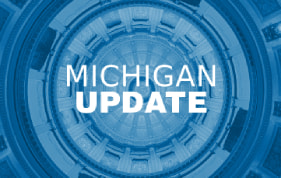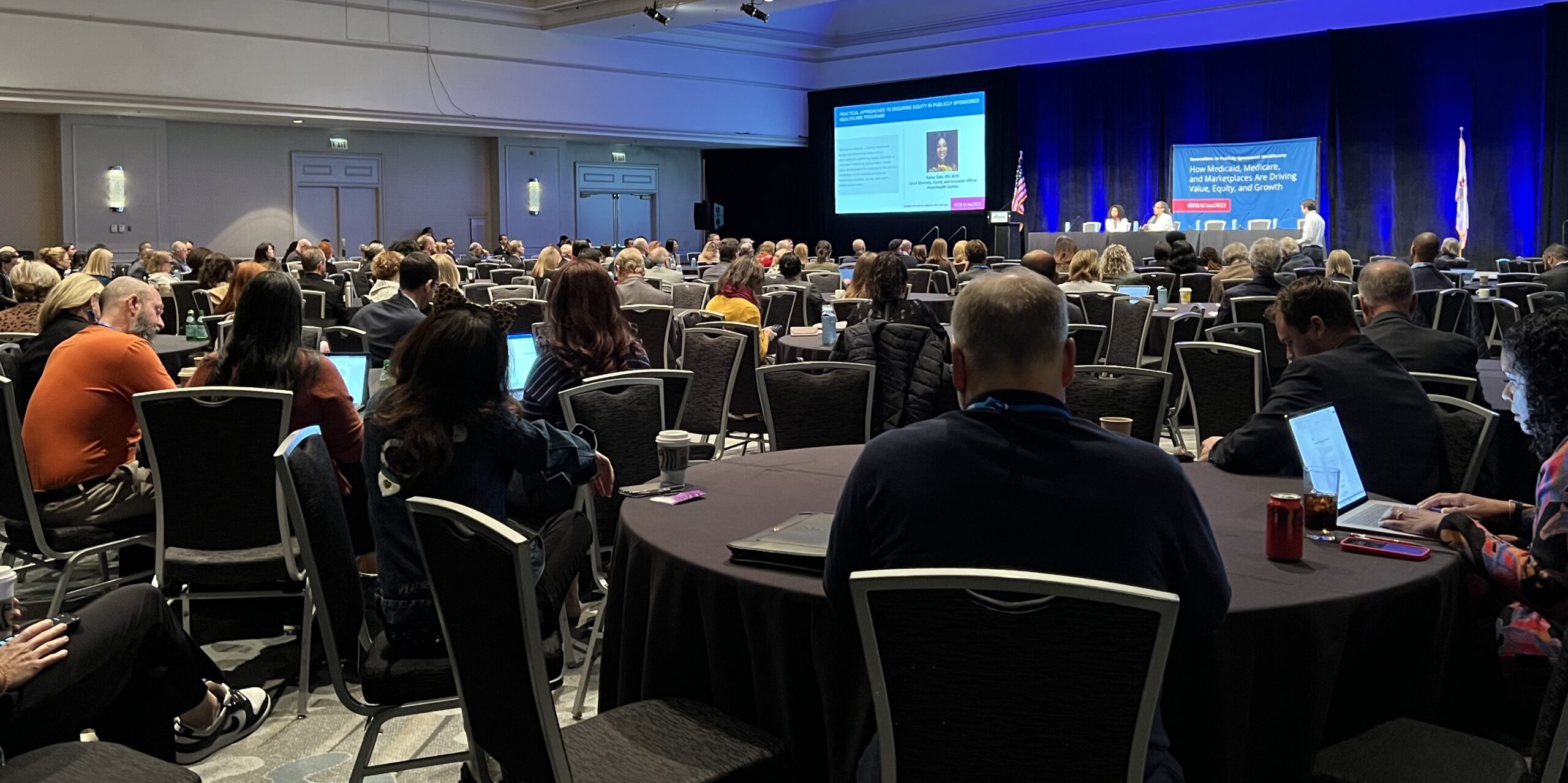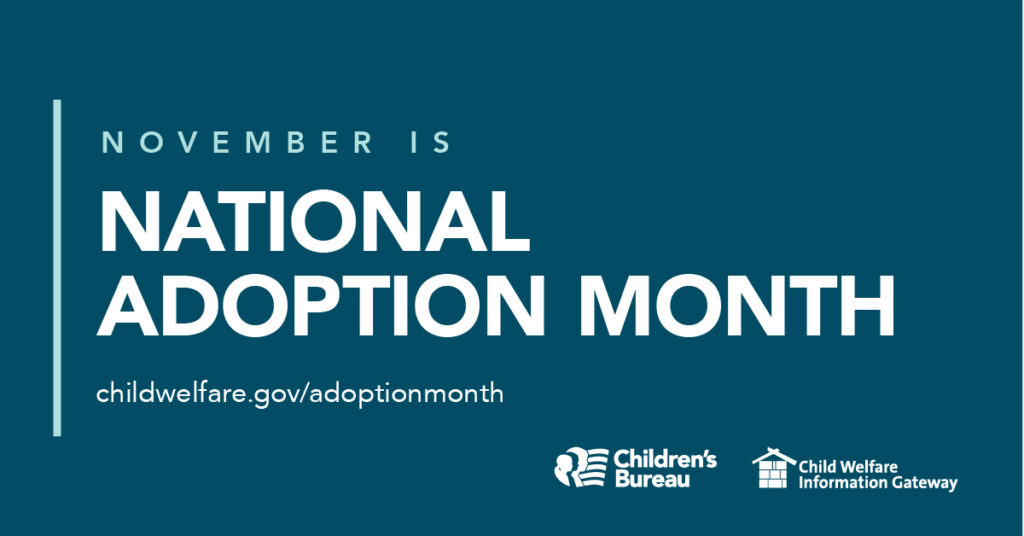This week, our In Focus section reviews a wide-ranging proposed rule issued by the Centers for Medicare & Medicaid Services (CMS) on November 6, 2023. The rule would update various policies governing Medicare Advantage (MA, or Part C), the Medicare Prescription Drug Benefit (Part D), Medicare cost plans and Programs of All-Inclusive Care for the Elderly. These proposed policy reforms would implement changes related to Star Ratings, marketing and communications, agent/broker compensation, health equity, dual eligible special needs plans (D-SNPs), utilization management, network adequacy, and other programmatic areas. The proposals reflect the agency’s continuing focus on increasing program transparency, improving health equity, reducing the cost of care for Medicare beneficiaries, and expanding access to behavioral health services.
MA and Part D stakeholders are encouraged to provide CMS with feedback and analysis regarding the potential impact of these changes. Comments on the proposed rule are due by January 5, 2024. The final rule would take effect in contract year 2025.
Improving Access to Behavioral Health Care Providers
CMS proposes regulatory changes intended to improve access to behavioral healthcare by adding certain provider specialties to the MA network adequacy standards as follows.
- CMS proposes to add a new facility-specialty type to the existing list of facility-specialty types evaluated as part of its plan network adequacy reviews. The new facility-specialty type, outpatient behavioral health, would be included in network adequacy evaluations, including marriage and family therapists (MFTs), mental health counselors (MHCs), opioid treatment programs, community mental health centers, and/or other behavioral health and addiction medicine specialists and facilities.
- MFTs and MHCs will be eligible to enroll in Medicare and start billing for services beginning January 1, 2024, because of the new statutory benefit category established in the Consolidated Appropriations Act (CAA) of 2023. CMS proposes to make corresponding changes to its network adequacy requirements for MA organizations.
- For purposes of the network adequacy requirements, the new facility-specialty type would be evaluated using time and distance and minimum number standards in the proposed regulation.
Increased Transparency for Special Supplemental Benefits for the Chronically Ill
In 2018, Congress enacted new authorities pertaining to supplemental benefits for MA members with chronic health conditions. CMS refers to this category of benefits as Special Supplemental Benefits for the Chronically Ill (SSBCI). These services are available only to enrollees with ongoing conditions and who meet certain criteria established in the statute. In contrast to the general policy that MA benefits should be offered uniformly to all plan members, MA plans may offer SSBCI tailored to a qualifying individual’s specific medical diagnosis and needs.
Supplemental benefits, including SSBCI, are generally funded with MA plan rebate dollars. CMS notes that the number of MA plans that offer SSBCI—and the number and scope of SSBCI that individual plans provide—has increased since their introduction in 2019.
Under the proposed rule:
- MA organizations would be required to demonstrate, through relevant and acceptable evidence, that an item or service offered as SSBCI has a reasonable likelihood of improving or maintaining the health or overall function of chronically ill beneficiaries. MA plans also must, by the date on which they submit a bid to CMS, include a bibliography of evidence supporting this position. According to CMS, this expectation would shift the burden of proof from the agency to MA organizations, requiring plans to demonstrate compliance with this standard and that SSBCI items and services are evidence-based.
- MA plans must follow their written policies based on objective criteria for determining enrollee eligibility for SSBCI when making determinations.
- Require that MA plans document denials of SSBCI eligibility rather than its approvals.
- CMS would codify its authority to review and deny approval of an MA organization’s bid if the plan cannot demonstrate, through relevant and acceptable evidence, that its proposed SSBCI has a reasonable expectation of improving or maintaining the health or overall function of a chronically ill enrollee.
- CMS also would codify its authority to review SSBCI offerings annually for compliance and in light of the available evidence.
According to CMS, these proposals, if implemented, would better ensure that the benefits offered as SSBCI are reasonably expected to positively affect the health and well-being of chronically ill beneficiaries and guard against the use of MA rebate dollars for SSBCI that unsubstantiated.
In addition, CMS is proposing new policies to improve transparency regarding SSBCI so that beneficiaries are aware that SSBCI are only available to enrollees who meet the eligibility criteria. More specifically, CMS proposes to:
- Modify the current requirements for the SSBCI disclaimer that MA organizations must use whenever SSBCI are mentioned. The SSBCI disclaimer would have to list the relevant chronic condition(s) that qualify for the benefits that MA organizations offer.
- Establish specific font and reading pace parameters for the SSBCI disclaimer in print, television, online, social media, radio, other voice-based ads, and outdoor advertising, including billboards. Finally, it would clarify that MA organizations must include the disclaimer in all marketing and communications materials that mention SSBCI.
Requiring Mid-Year Enrollee Notification of Available Supplemental Benefits
As noted previously, over the past several years, the number of MA plans offering supplemental benefits has increased. The benefits offered are broader in scope and variety, and an increasing amount of MA rebate dollars are being directed toward these benefits. At the same time, plans have reported that the number of enrollees who use many of these benefits is low.
- CMS proposes requiring MA plans to notify enrollees mid-year of the unused supplemental benefits available to them. The notice would list any supplemental benefits that a beneficiary does not use during the first six months of the year (January 1−June 30).
- At present, MA plans are not required to send any communication specific to an enrollee’s usage of supplemental benefits. This policy is intended to educate enrollees on their access to supplemental benefits and encourage greater use of these benefits.
Enhancing “Guardrails” for Agent and Broker Compensation
For many years, CMS has set upper limits on the compensation that agents and brokers can receive for enrolling Medicare beneficiaries in MA and Part D plans. CMS believes that many MA and prescription drug payment plans, as well as third-party entities with which they contract, make structured payments to agents and brokers that circumvent these compensation caps.
- In this regulation, CMS proposes to generally prohibit contract terms between MA organizations and agents, brokers, or other third party marketing organizations (TPMOs) that may interfere with the agent’s or broker’s ability to objectively assess and recommend the plan that best-suited to a beneficiary’s healthcare needs; to set a single reimbursement rate for all plans; to revise the scope of items and services included within agent and broker compensation; and to eliminate the regulatory framework that currently allows for separate payment to agents and brokers for administrative services.
- The agency would make conforming changes to the Part D agent broker compensation rules.
Requiring an Annual Health Equity Analysis of Utilization Management Policies and Procedures
CMS proposes several regulatory changes to the composition and responsibilities of an MA organization’s utilization management (UM) committee.
- The new rules would require that a member of the UM committee have expertise in health equity and that the UM committee conduct an annual health equity analysis of the use of prior authorization.
- The proposed analysis would examine the impact of prior authorization on enrollees with one or both of the following social risk factors (SRFs): receipt of the low-income subsidy, dual eligibility for Medicare and Medicaid (LIS/DE), or a disability.
- The proposed analysis must compare metrics related to the use of prior authorization for enrollees with the specified SRFs with enrollees without the specified SRFs. The results of the analysis must be made publicly available on the MA organization’s website in an easily accessed manner.
Enhancing Enrollees’ Right to Appeal an MA Plan’s Decision to Terminate Coverage for Non-Hospital Provider Services
Beneficiaries enrolled in traditional Medicare and MA plans have the right to a fast-track appeal by an independent review entity (IRE) when their covered skilled nursing facility (SNF), home health agency (HHA), or comprehensive outpatient rehabilitation facility (CORF) services are being terminated. At present, quality improvement organizations (QIOs) function as IREs and conduct these reviews.
Furthermore, MA enrollees do not have the same access to QIO review of a fast-track appeal as traditional Medicare beneficiaries.
CMS proposes to:
- Require that QIOs, instead of MA plans, review untimely fast-track appeals of an MA plan’s decision to terminate HHA, CORF, or SNF services
- Fully eliminate the provision requiring the forfeiture of an enrollee’s right to appeal a termination of services decision when they leave the facility
According to CMS, these proposals would align MA regulations with the parallel reviews available to beneficiaries in traditional Medicare and expand the rights of MA beneficiaries to access the fast-track appeals process.
Increasing the Percentage of Dually Eligible Managed Care Enrollees Who Receive Medicare and Medicaid Services from the Same Organization
In the proposed rule, CMS expresses concern that a significant number of dually eligible enrollees receive Medicare services through one managed care entity and Medicaid services through another (misaligned enrollment), rather than from one organization (aligned enrollment. The proposed rule states that in the long run, “for dually eligible individuals who are in Medicare and Medicaid managed care, we believe that we should continue to drive toward increasing aligned enrollment until it is the normative, if not only, managed care enrollment scenario…. For dually eligible individuals that elect MA plans, we are focused on increasing enrollment in integrated D-SNPs: fully integrated dual eligible special needs plans (FIDE SNPs), highly integrated dual eligible special needs plans (HIDE SNPs), and applicable integrated plans (AIPs) [pages 286-287].”
To move in this direction, CMS offers several interconnected proposals as follows:
- Replace the current quarterly special enrollment period (SEP) with a monthly SEP for dually eligible individuals and others enrolled in the Part D low-income subsidy program to elect a standalone PDP
- Create a new integrated care SEP to allow dually eligible individuals to elect an integrated D-SNP on a monthly basis
- Limit enrollment in certain D-SNPs to individuals who are also enrolled in an affiliated Medicaid managed care organization (MCO)
- Limit the number of D-SNP plan benefit packages an MA organization, its parent organization, or an entity that shares a parent company with the MA organization, can offer in the same service area as an affiliated Medicaid MCO
According to CMS, these initiatives would increase the percentage of dually eligible MA enrollees who are in plans that are also contracted to cover Medicaid benefits, thereby expanding access to integrated materials, unified appeal processes across Medicare and Medicaid, and continued Medicare services during an appeal.
Impose New Contracting Standards for Dual Eligible Special Needs Plan (D-SNP) Look-Alikes
Under existing regulations, CMS does not contract with and will not renew the contract of a D-SNP look-alike; that is, an MA plan that is not a SNP but in which dually eligible enrollees account for 80 percent or more of total enrollment. CMS proposes to lower the D-SNP look-alike threshold from 80 percent to 70 percent in 2025 and to 60 percent in 2026. CMS states that this proposal is intended to help address the continued proliferation of MA plans that serve high percentages of dually eligible individuals without meeting D-SNP requirements.
Other Topics in the Proposed Rule
In addition, the proposed rule calls for:
- Providing greater flexibility for Part D plan sponsors to substitute biosimilar products during the plan year
- Limiting out-of-network cost sharing for D-SNP PPOs
- Standardizing the MA risk adjustment data validation appeals process
- Expanding permissible data use and data disclosure for MA encounter data including for support for Medicaid and state Medicaid agencies to better coordinate care for dually eligible individuals
The Health Management Associates Medicare team will continue to analyze these proposed changes. We have the depth and breadth of expertise to assist with tailored analysis, to model policy impacts, and to support the drafting of comment letters to this rule. For more information or questions about the policies described, contact Amy Bassano ([email protected]), Julie Faulhaber ([email protected]), Andrea Maresca ([email protected]), or John Richardson ([email protected]).






